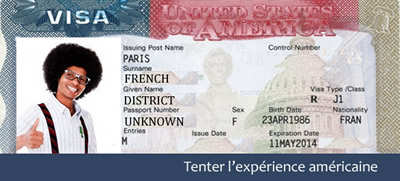Difference between F1 and J1 Visa
Key Difference: F1 visas are most commonly for students that wish to acquire a degree from the US and wish to stay for employment in the country following their degree. J1 visas are more for people who wish to attend the US for a cultural exchange program or learn a specialized trait in a specialized field.
 Study abroad programs are a great way to go to another country in order to gain the benefits of studying in a prestigious university. United States is one of the most sough out place where students from all around the world apply to study in universities across the US. There are two visas under which students can apply to study, the F1 visa and the J1 visa. These visas are in no way similar to each other and one should understand the differences very clearly before applying for either one of these programs.
Study abroad programs are a great way to go to another country in order to gain the benefits of studying in a prestigious university. United States is one of the most sough out place where students from all around the world apply to study in universities across the US. There are two visas under which students can apply to study, the F1 visa and the J1 visa. These visas are in no way similar to each other and one should understand the differences very clearly before applying for either one of these programs.
The F1 visas are non-immigrant visas that are applicable to students that wish to study in the United States. It allows foreigners to pursue education (academic studies and/or language training programs) in the country. The visa is for a full course of study, such as Bachelors, Masters, or PhD. F-1 students must show that they are able to support themselves during their stay in the U.S., as their opportunities for legal employment are quite limited. There are other types of F visas such as F2, which is for children and spouses of F1 visa holders and F3 visas, which is for border commuters that reside in their own country but study in the United States (countries such as Mexico or Canada).
 J1 Visas are non-immigrant visas that allow students to become exchange visitors in the United States. It is commonly for exchange visitors that wish to participate in programs that promote cultural exchange, especially to obtain medical or business training within the U.S. In order to be eligible for the visa, the holders must be sponsored by a private sector or a government program. Students must be part of a cultural or a student exchange program. Holders are only allowed to reside in the country till the end of their exchange program and are allowed to stay in the U.S. for another 30 days known as ‘grace period’. Once a holder leaves the country following his expiration of the visa, he/she are not allowed to enter for years.
J1 Visas are non-immigrant visas that allow students to become exchange visitors in the United States. It is commonly for exchange visitors that wish to participate in programs that promote cultural exchange, especially to obtain medical or business training within the U.S. In order to be eligible for the visa, the holders must be sponsored by a private sector or a government program. Students must be part of a cultural or a student exchange program. Holders are only allowed to reside in the country till the end of their exchange program and are allowed to stay in the U.S. for another 30 days known as ‘grace period’. Once a holder leaves the country following his expiration of the visa, he/she are not allowed to enter for years.
F1 visas are most commonly for students that wish to acquire a degree from the US and wish to stay for employment in the country following their degree. J1 visas are more for people who wish to attend the US for a cultural exchange program or learn a specialized trait in a specialized field such as Medical, Teaching, etc.
Comparison between F1 and J1 Visa:
|
|
F1 Visa |
J1 Visa |
|
Funding |
Funding can be personal or outside funds (or a combination of both) |
Must have a substantial portion of their funding from a source other than personal. |
|
Proof of Funding |
Newly admitted student must show the school and U.S. consulate proof of sufficient funding for his or her first year of study in the U.S. |
Newly admitted student must show the school and U.S. consulate proof of sufficient funding for the whole duration of his or her academic program in the U.S. |
|
On-Campus Employment |
Part-time on-campus employment is allowed during periods of full study. During periods of recess, students holding F1 status may work full time |
Part-time on-campus employment is allowed during periods of full study. During periods of recess, students holding J1 status may work full time only after being permitted by their Alternate Responsible Officer (OISS advisor). |
|
Off-Campus Employment |
Students are eligible for Optional Practical Training (OPT). Students may apply for a 12 month period of time in which they may participate in an off-site program which relates directly to their program of study. |
Academic training can occur for up to 36 months (in some cases) of work which is directly related to their program of study. This off-campus employment can be used both during studies and post-graduation. |
|
Dependents |
Dependents in F-2 status are not eligible for employment or study as degree-seeking college students. |
Dependents in J-2 status are eligible to apply for permission to work in the U.S. through the duration of the J-1 student’s program once they have entered the U.S. in the J-2 category. |
|
Bar |
No bar from returning |
Students will be barred from returning to the U.S. under the J1 research category for twelve months if they study on a J1 for more than six months. |
|
Eligibility |
F-2 spouses are not eligible to study full-time in the U.S. F-2 spouses may engage in study that is merely avocational or recreational in nature. F-2 children in primary and secondary schools may be eligible to study part-time or full-time in the U.S. |
J-2 dependents are eligible to study part-time or full-time in the U.S. |
|
Extension |
Student is allowed to transfer their visas if they find a job following the end of their studies. An extension for up to 18 months is possible for post-doctoral research. |
A 17-Month STEM Extension is possible. A job offer is not required. |
|
Two-Year Home Country Physical Presence |
No |
Yes. J-1 exchange students are required to maintain a “home-country physical presence requirement” for at least two years |
|
Types |
F1: for full-time students F2: for spouses and children of F-1 visa holders F3: for "border commuters" who reside in their country of origin while attending school in the United States. |
Private sector programs:
Government and academic programs:
|
Image Courtesy: internationalstudentinsurance.com, frenchdistrict.com









Add new comment